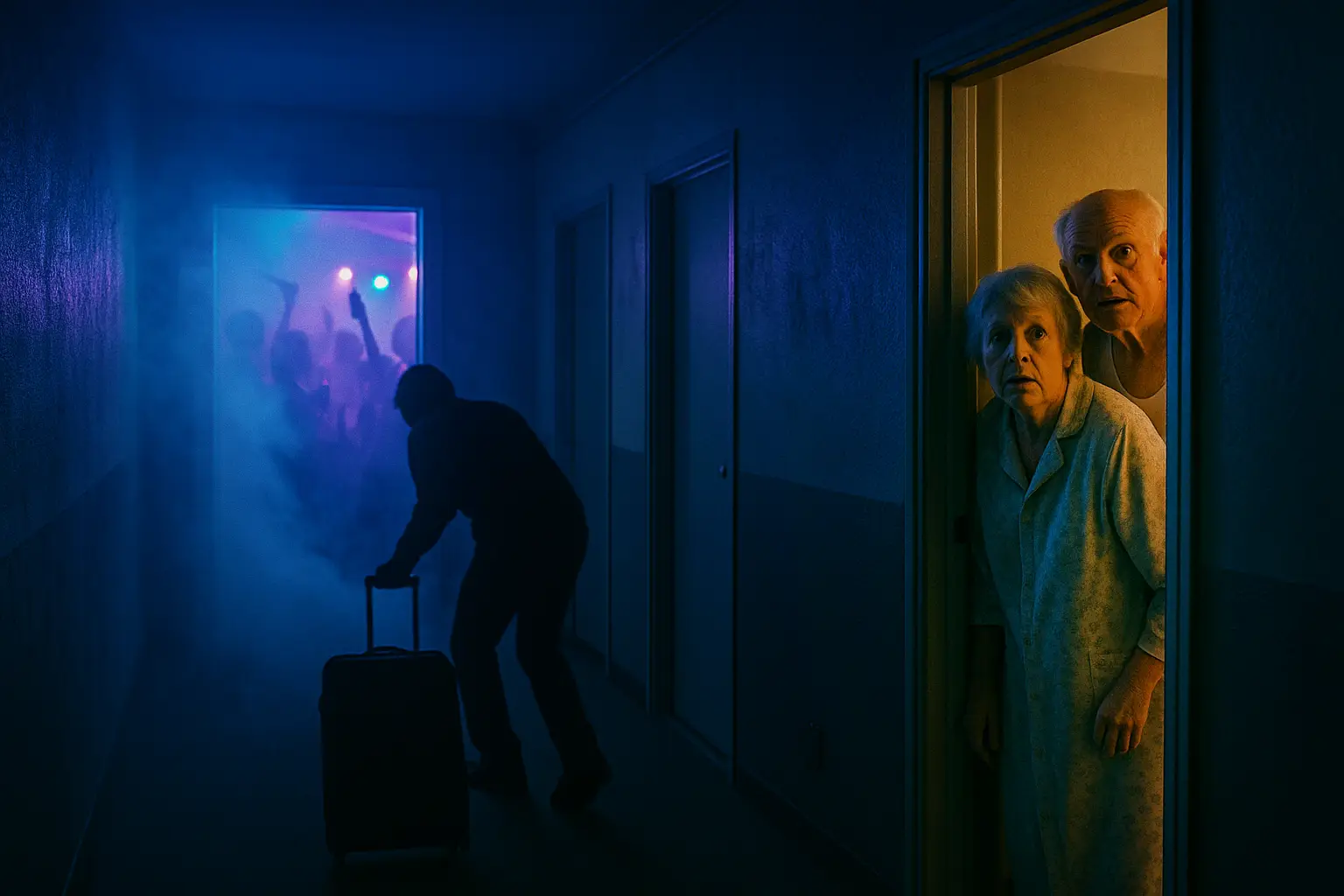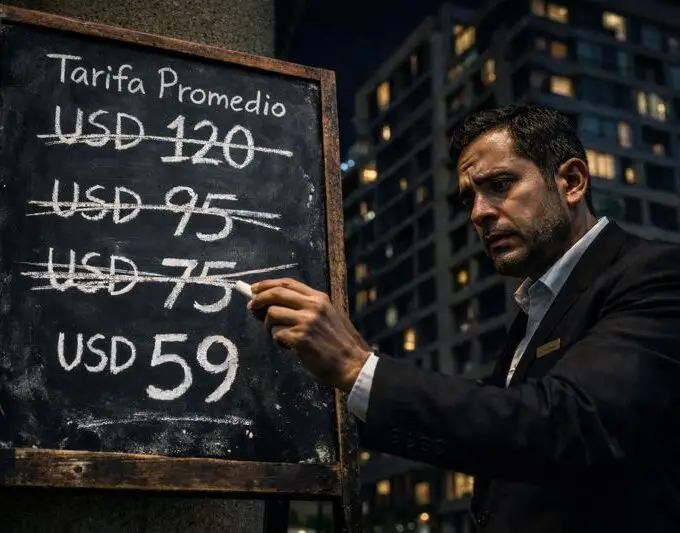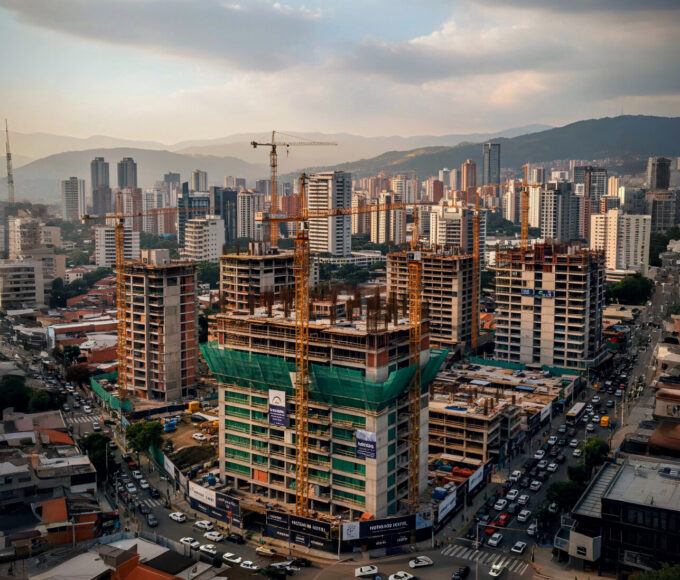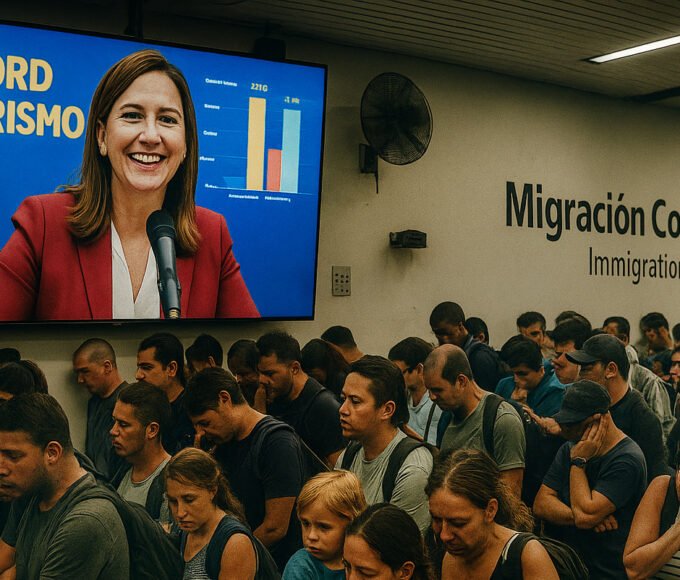
End of illegal Airbnb? How the new national regulation for tourist housing in Colombia will work
Four words sum it up: coexistence, responsibility, equity and control. Colombia cannot continue to tolerate tourism without clear rules. This bill 632 is not an affront to tourism, but an urgent call to order a market that has grown without control or strategy.
The phenomenon of Airbnb-type tourist rentals is not exclusive to Colombia. It is a global phenomenon that has transformed the way visitors stay in major cities around the world. In the Colombian context, this growth has been especially accelerated in destinations such as Medellín, which we will use here as a representative example to illustrate the regulatory challenges facing the country.
The regulatory overflow: what Medellin can no longer bear
Between 2019 and 2025, Medellín experienced an accelerated increase in the supply of Airbnb-type tourist accommodations, which went from 5,000 to more than 17,000 beds. This expansion occurred outside the existing regulatory frameworks: without registration, inspection, minimum safety standards or tax obligations.
At the same time, the hotel supply also grew, from 436 to 565 hotels, with an estimated capacity of 30,000 rooms. But, unlike informal tourist leases, hotels do operate under clear legal requirements: health surveillance, emergency plans, national registration, insurance, taxes and, in some cases, rate control, as occurred during COP16.
Bill 632 seeks to correct this asymmetry through measures such as prior authorization in horizontal properties, the creation of a public registry of tourist accommodations and the application of sanctions to those who do not comply. According to estimates, more than 60 % of the dwellings that are rented on short term rentals through platforms do not meet the minimum requirements or are not taxed as required by law.
Defining coexistence: more than noise and neighborhood complaints
Complaints about excessive noise, garbage accumulation or inappropriate behavior in common areas are not isolated cases. They are symptoms of a model that grew without planning or professionalization. In many residential buildings, neighbors are forced to coexist with a constant flow of strangers, without security guarantees or clear coexistence protocols.
Beyond the noise and disorder, the lack of control has facilitated the emergence of even more worrisome dynamics: consumption of illicit substances, commercial sexual activities and, in some cases, situations involving minors in ambiguous contexts that must be treated with the utmost seriousness by the authorities. Without regulation, these spaces can become blind spots for the law.
The new law proposes that tourist rentals in condominiums can only be carried out if they are authorized by a qualified majority of the co-ownership. In addition, it introduces information mechanisms such as an occupancy app that allows the authorities and the community to know how many people are staying in each property in real time.
In short, the right to rent a property cannot be above the right to live with peace of mind. And to achieve this, transparency, access control and minimum operating protocols are needed.
Fair competition: leveling the playing field for everyone
Hotels in Colombia are subject to stringent regulations. We must register with the Ministry of Commerce, have evacuation plans, have insurance in force, invoice each sale, pay local and national taxes, and submit to all kinds of periodic and random inspections. Each bed offered in a hotel has behind it a formal system of guarantees established for the client and for the State.
This imbalance in the regulatory treatment between players in the same sector distorts the market and damages confidence in the system. Bill 632 seeks to level the playing field: it requires that all those offering tourist accommodation, regardless of the type of property, channel or marketing platform, meet the same requirements. Mandatory registration, inspections with technical criteria, full invoicing, payment of sales taxes such as VAT or tourist taxes such as FONTUR and others, and, in the case of apartments in horizontal properties, express approval by qualified majority of the co-ownership to operate as tourist lodging.
This is not a punishment to the digital model or a barrier to innovation. It is a way to ensure that all players compete on a level playing field. Without this balance, what would exist is a vacuum that ends up creating unfair competition in the sector.
Parallel industry: when leasing becomes evasion
In Colombia, more than half of the properties offered on platforms such as Airbnb are not registered and do not meet minimum requirements. This informality has given rise to a parallel industry that operates without controls, without standards and without commitments to the State or the communities.
This type of operation -although lucrative- avoids the whole structure of obligations that formal lodgings do face. There is no tax payment, no supervision, no traceability. In practice, many of these properties operate as micro-accommodation businesses, but without assuming any of the burdens that this implies.
While formal operators face inspections, sanitary requirements and administrative controls, illegal leases enjoy a structural advantage: they can offer lower prices because they do not pay taxes, do not report and are not accountable to anyone.
This distortion is not marginal: it directly affects the quality of tourism in Colombia, visitor safety and the stability of the neighborhoods where these operations are concentrated. It is not simply informality: it is organized evasion with the appearance of modernity.
It is not innovation. It is a business model that was built on the omission of duty.
International comparisons: indispensable lessons learned
The deregulated tourist rental boom has forced many countries to adopt specific regulatory frameworks. In Latin America and other regions of the world, measures such as mandatory registration, explicit approval of co-ownership, clear tax requirements and time or capacity limitations per property have been implemented. In cities such as Barcelona, New York or Buenos Aires, operating without complying with these requirements can result in significant fines, forced closures or severe administrative sanctions.
Bill 632 does not start from a blank sheet of paper. It has gathered international lessons learned, has observed what has worked - and what has not - in more experienced markets, and proposes a route adapted to the Colombian reality. The principle is clear: clear rules for all actors, with effective control tools and real consequences for non-compliance.
First comes innovation: new ways of traveling, of staying, of sharing spaces. Then, inevitably, comes regulation: the State's effort to order this transformation, protect the collective interest and ensure that coexistence is not sacrificed in the name of business. This has happened in other sectors, and it is happening with digital tourism. Bill 632 is the logical continuation of this process: an attempt to allow market dynamism and the need for institutional order to coexist without one overriding the other.
Closing
Bill 632 does not attack tourism: it protects those who want to live in coexistence and those who want to compete with transparency. It demands basic conditions of legality and equity as a necessary response to a market that grew outside the law and at the expense of citizen coexistence.
Blackroom sees this initiative as a positive step towards greater competitiveness in the sector and harmonious coexistence in cities. A clear framework not only allows to level the playing field, it also provides certainty to good operators who have been doing their job with responsibility and respect. For them, none of this will be an obstacle. On the contrary: legality will be a competitive advantage.
If Colombia wants to consolidate a robust, serious and safe tourism, it must start by demanding the basics: that everyone who rents as a business is registered, visible and complies with the law. That is not too much to ask. It is only fair.
Alejandro Gonzalez
Co-founder of Blackroom
Alejandro Gonzalez Uribe
Co-founder of BLACKROOM and MACCA. I'm obsessed with turning good ideas into profitable hotels—built from the user's desire and the investor's logic
Recent Posts
Related Articles
Hotel oversupply in Medellín. More tourists does not mean more reservations.
Let's make one thing clear: Medellín is not empty. Nor did it cease to be...
3,000 new hotel rooms are coming to Medellín. Too much supply?
Tourism growth is not enough when supply grows unchecked During...
Rate war: This happens when Medellín becomes flooded with hotels and Airbnbs without any control.
Medellín continues to grow, but the market has changed. Hotels...
Tourism in Colombia: the paradox of a record without help from the national government
While the Ministry of Commerce celebrates record tourism revenues—more than...












Leave a comment